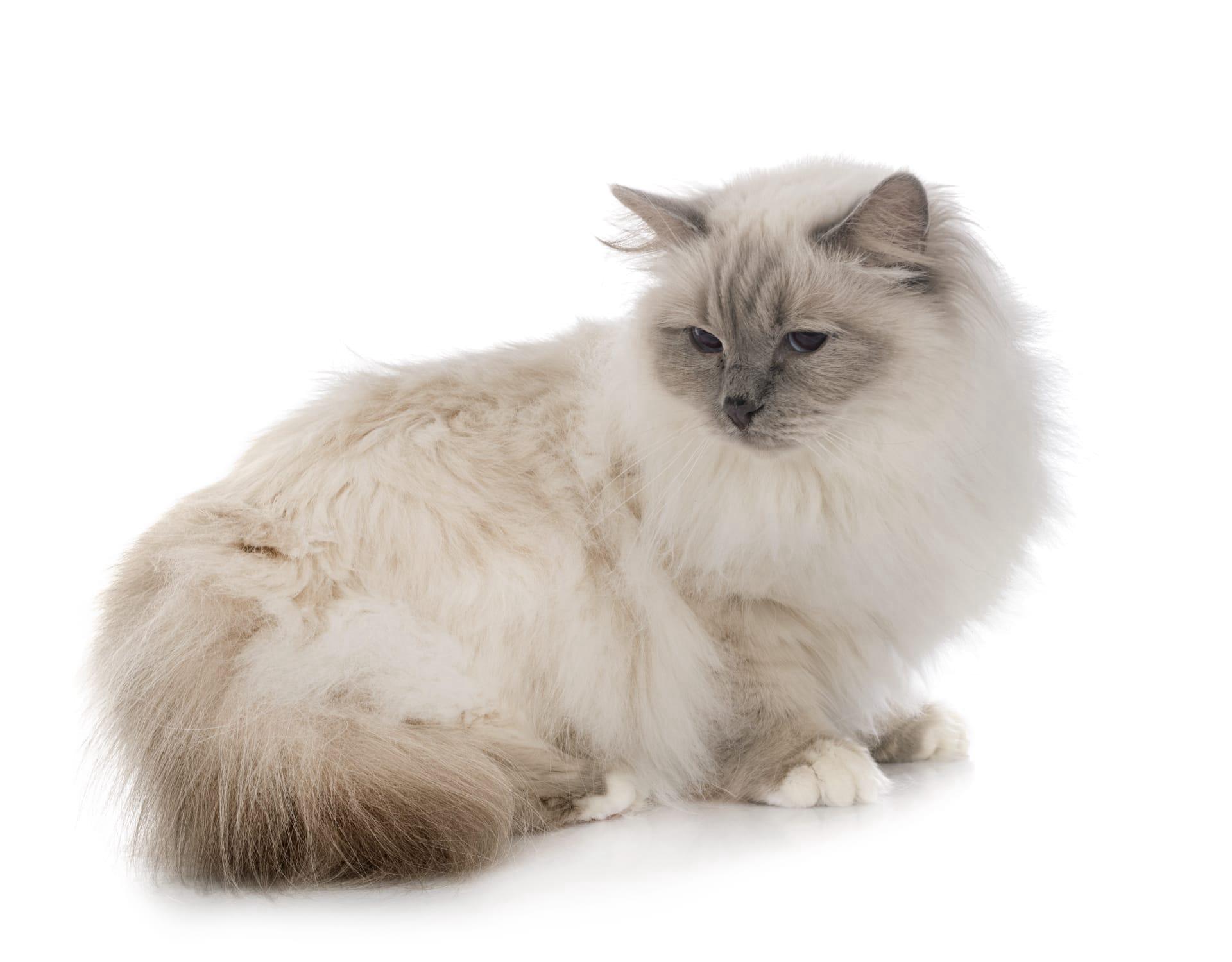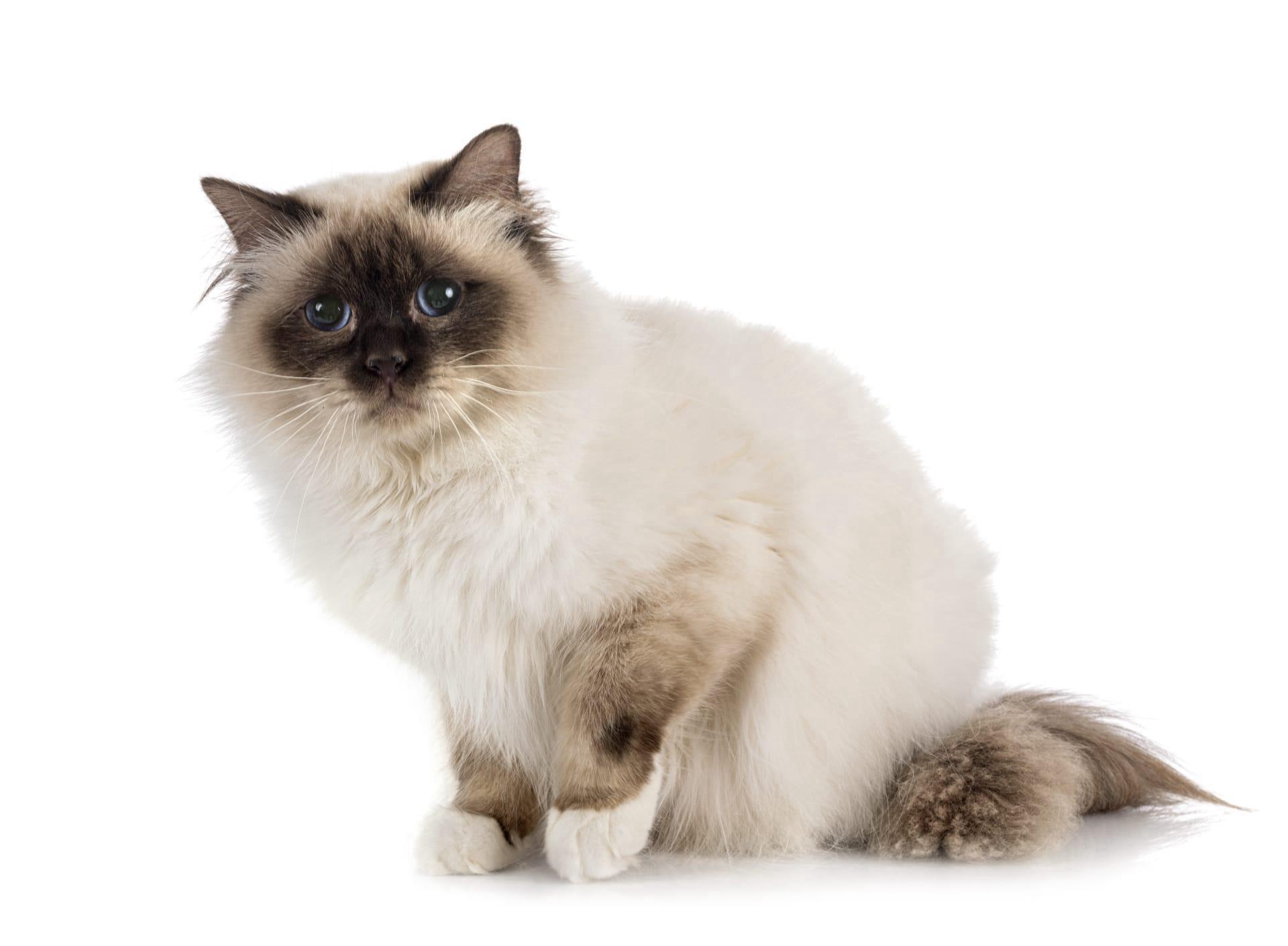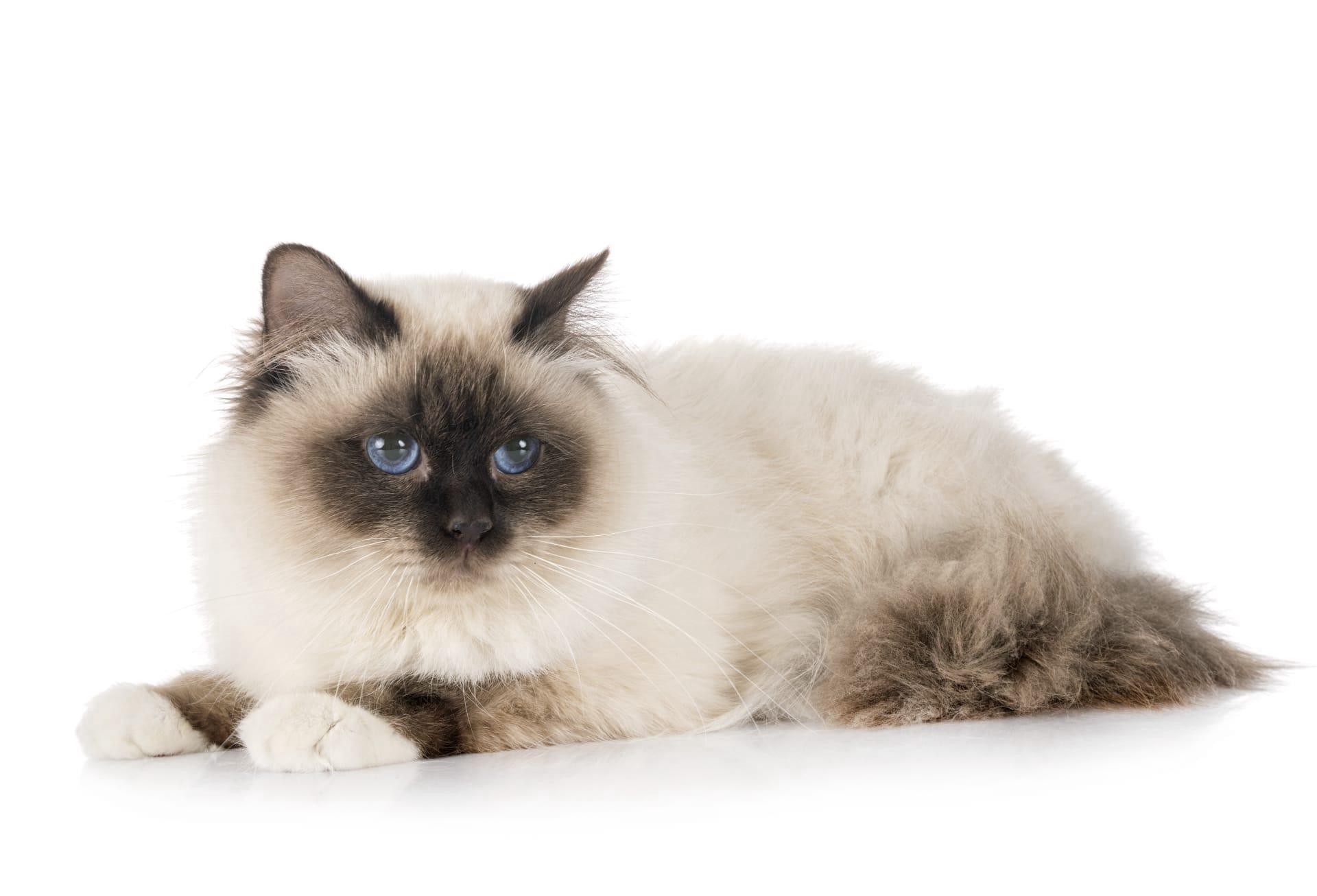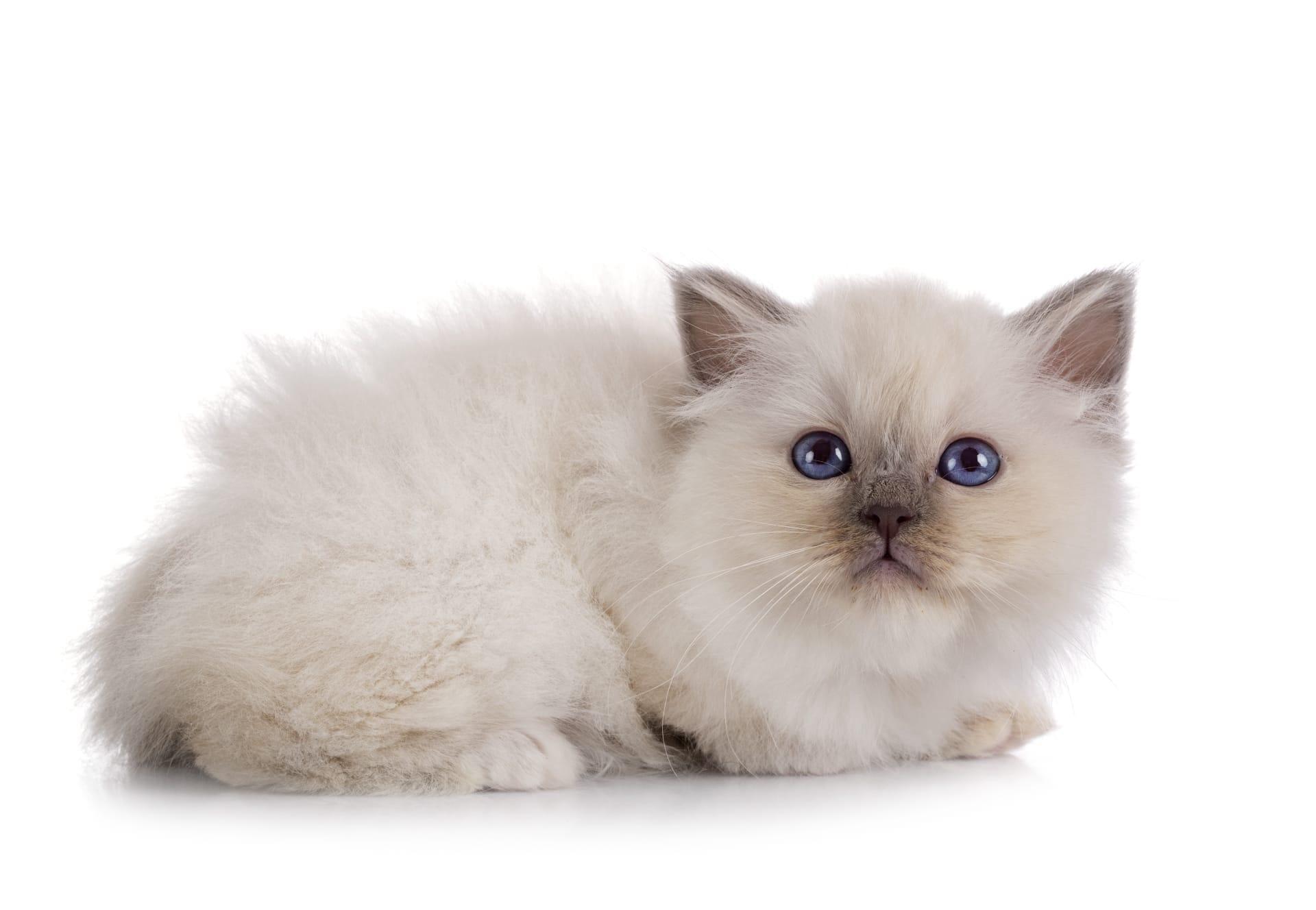Birman Cat Trivia
- Home /
- Trivia Question /
- Animal /
- Birman Cat Trivia
1
Question: What distinguishes the Birman cat's coat from other breeds, and how does it change with age?
Answer: The Birman cat boasts a unique, single-layered coat that lacks an undercoat, making it less prone to matting and giving it a silky texture. This coat is notable for its color-point pattern, similar to that of a Siamese, but what sets the Birman apart is its gradual color development. Kittens are born pure white, and their true colors only emerge as they age, typically stabilizing around 2 years of age. This color evolution adds a layer of anticipation and surprise to owning a Birman, as the final coat color and pattern can take time to fully reveal.
Question: Why do Birman cats have such distinct eye colors, and what is the genetic reason behind it?
Answer: Birman cats are renowned for their striking deep blue eyes, a trait that is both a breed standard and a genetic hallmark. This eye color is due to a lack of melanin in the iris, governed by the gene responsible for the color-point pattern. The same genetic mechanism that restricts the darker colors to the cat's extremities—face, ears, paws, and tail—also influences the eye color, ensuring that all purebred Birmans have this captivating blue gaze. This genetic trait is directly linked to the temperature-sensitive enzyme that controls the coloration in their fur, showcasing a fascinating interplay between genetics and physical appearance.

2
Question: Is it true that Birman cats are completely hypoallergenic?
Answer: A common misconception is that Birman cats are hypoallergenic, but in reality, no cat breed is completely hypoallergenic. Birmans may produce fewer allergens than some other breeds due to their single-layered coat, which sheds less and therefore releases fewer allergens into their environment. However, people with severe allergies may still react to them. It's important for potential owners with allergies to spend time with a Birman before adopting to assess their personal reaction.
Question: Do Birman cats require extensive grooming to maintain their coat and overall appearance?
Answer: Despite their luxurious appearance, Birman cats are relatively low maintenance when it comes to grooming. Their lack of an undercoat means their fur doesn't mat or tangle easily, requiring only a weekly brushing to remove loose hairs and maintain their coat's silkiness. This simplicity in grooming defies the expectation that long-haired cats are always high maintenance, making Birmans an ideal choice for individuals who admire beauty without the burden of extensive grooming routines.

3
Question: What is the origin of the Birman cat, and how did it become known in the Western world?
Answer: The Birman cat's origin is shrouded in mystery and legend, often linked to the temples of Burma (modern-day Myanmar), where they were reputedly worshipped as sacred companions to the priests. The breed's introduction to the Western world is typically credited to the early 20th century when a pair were allegedly smuggled out of Burma to France. The breed faced near extinction during World War II, but dedicated breeding programs in Europe helped to preserve and proliferate the Birman breed globally, leading to its current popularity.
Question: How does the temperament of a Birman cat distinguish it from other breeds?
Answer: Birmans are cherished for their gentle, sociable, and affectionate nature, making them excellent companions. They are known to form strong bonds with their human families, often following them from room to room and participating in family activities. Their calm demeanor makes them well-suited to households with children and other pets. Unlike some breeds, Birmans are neither overly demanding nor aloof; they enjoy attention and affection but are also content to spend time on their own, showcasing a balanced temperament that endears them to many.

4
Question: What are the health considerations specific to Birman cats, and how can they be addressed?
Answer: Birman cats are generally healthy, but like all breeds, they have predispositions to certain genetic conditions. These include hypertrophic cardiomyopathy (HCM), a heart disease, and kidney issues such as polycystic kidney disease (PKD). Regular veterinary check-ups, including heart and kidney screenings, are essential for early detection and management of these conditions. A balanced diet and regular exercise can also support their overall health and longevity, with Birmans typically living between 12 to 16 years when well-cared for.
Question: Can Birman cats adapt well to indoor living, and what considerations should be made for their environment?
Answer: Birman cats thrive in indoor environments and are perfectly content living a cozy indoor life, provided they have sufficient space to play and explore. It's important to enrich their environment with toys, scratching posts, and perches to encourage physical activity and mental stimulation. Given their sociable nature, Birmans also benefit from interactive play with their owners and may enjoy puzzle feeders or toys that promote engagement. Creating a safe, stimulating indoor environment can ensure a Birman cat remains happy, healthy, and well-adjusted to indoor living.

5
Question: What is the breeding history of the Birman cat, and how has it influenced their characteristics?
Answer: The Birman cat's breeding history is deeply intertwined with efforts to preserve its unique traits while enhancing genetic diversity. After nearly facing extinction during World War II, breeders meticulously worked to rebuild the Birman population, introducing careful breeding practices to maintain the breed's hallmark features—pointed coloration, blue eyes, and a gentle temperament—while ensuring genetic health. This history of careful selection has cemented the Birman's status as a breed with a stable temperament, distinct appearance, and relative health resilience, reflecting the dedication of breeders to uphold the breed's legacy.
Question: How does the Birman cat's social behavior impact its compatibility with other pets?
Answer: Birman cats are known for their exceptional sociability, not only with humans but also with other pets. Their gentle and playful nature makes them compatible with other cats and even dogs, provided proper introductions are made. Birmans are not typically territorial, allowing for smoother integration into multi-pet households. Their ability to adapt to the presence of other animals, coupled with their affectionate demeanor, makes them ideal pets for families looking for a harmonious addition to their home.